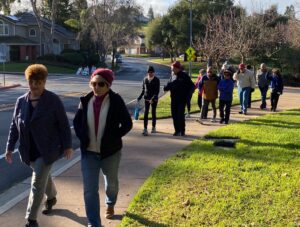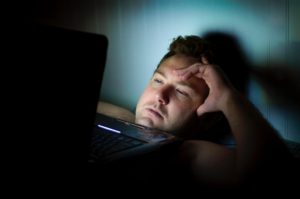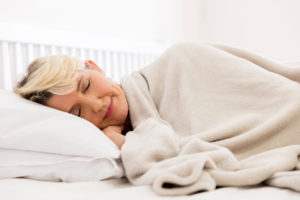
Walking-The Real Benefits
Ask Mr. Pedometer and Friends…..about Walking
Q: Mr. Pedometer, its winter. It’s cold outside, and frequently gray. Tell me again why I should get out of bed on a Saturday morning to walk with you?
A: You’ll feel better if you do. Don’t just take my word for it: Kelly McGonigal, Ph.D., the author of a new book entitled The Joy of Movement, offered these good reasons in the January edition of Spry (Parade.com):
-
IT’S A STRESS-BUSTER – “… A 25-year-old study in the Journal of Personality and Social Psychology found physical activity (walking) to be the most effective way to improve your mood. It beat eating, sleeping, and talking with friends. ‘While it doesn’t eliminate stress, it does help us handle it with greater hope and calm. Plus, it tends to shift our mood toward a more positive outlook.’”
-
IT HELPS US CONNECT – “When exercising,
 the brain releases chemicals, such as endorphins and endocannabinoids, which increase the pleasure we take from connecting with others,’ McGonigal says. ‘If you want to strengthen a relationship, take a walk If you want to form new friendships, find a place where you can move with others. If you struggle with social anxiety, regular exercise can make it easier and more enjoyable to spend time with others.’”
the brain releases chemicals, such as endorphins and endocannabinoids, which increase the pleasure we take from connecting with others,’ McGonigal says. ‘If you want to strengthen a relationship, take a walk If you want to form new friendships, find a place where you can move with others. If you struggle with social anxiety, regular exercise can make it easier and more enjoyable to spend time with others.’” -
IT BOOSTS YOUR BRAIN – “
Physical activity is already linked to better brain health, and McGonigal says that regular exercise (walking) can not only protect against Alzheimer’s disease but also strengthen the brain’s reward system. ‘This can relieve depression and make you better able to experience everyday pleasures,’ she says.
-
IT CAN MAKE YOU HAPPIER –
Being active with a group boosts the “feel-good” effect of movement more than exercising alone. “After being physically active with a group, people feel more optimistic, more hopeful, and more connected to others.”
So, less stress and/or depression, improved relationships, and increased happiness…isn’t that worth getting up and out for a walk?

